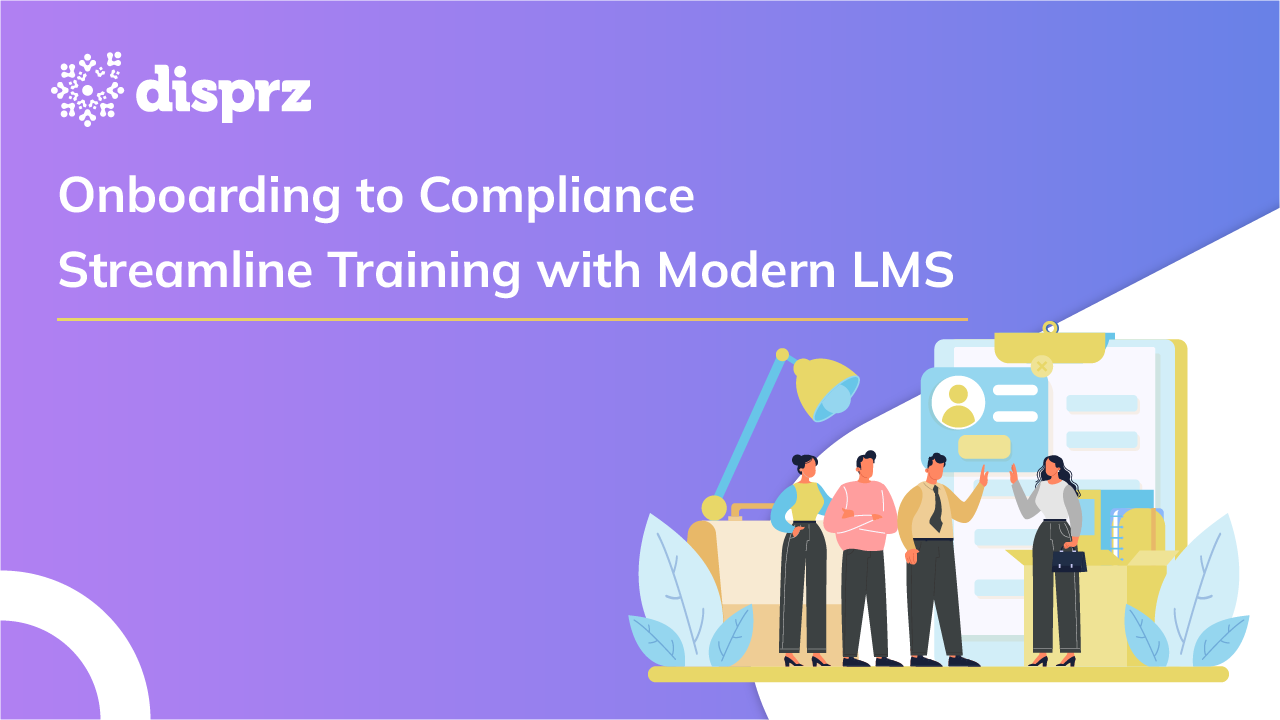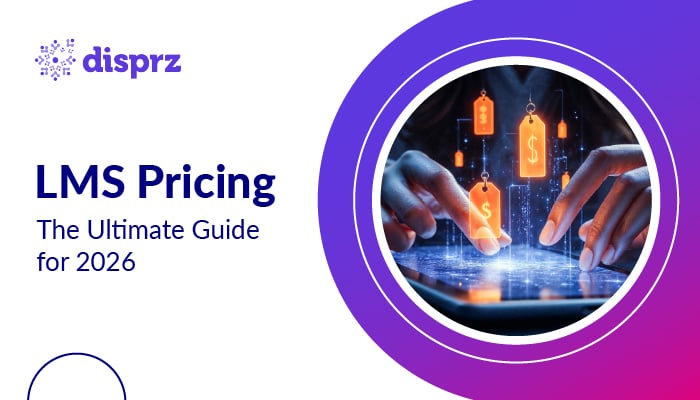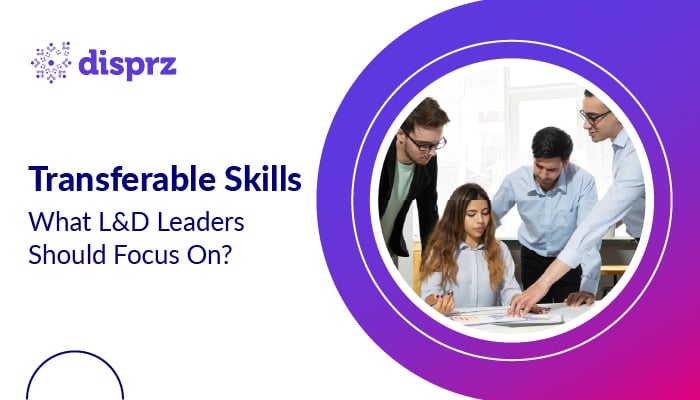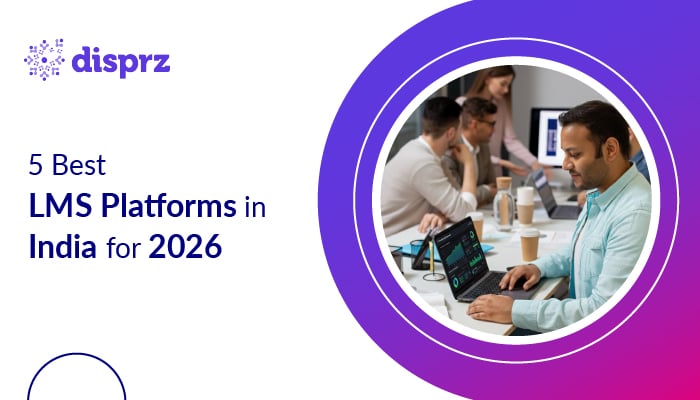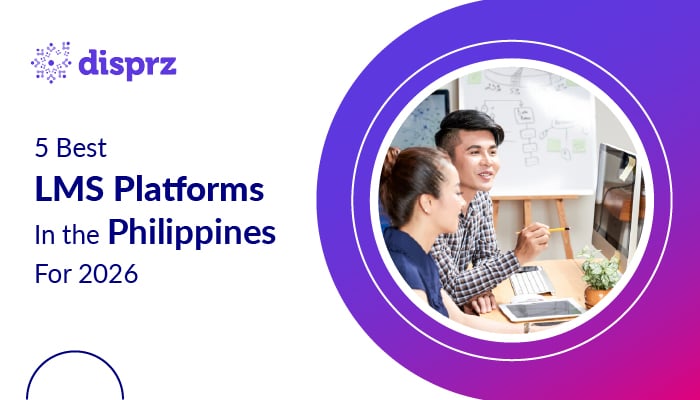In 2025, organizations face an evolving set of challenges when it comes to onboarding, compliance, and employee development. HR and learning & development (L&D) teams are tasked with managing the entire employee journey, from welcoming new hires to ensuring ongoing compliance and skill development. According to a report by Deloitte, 42% of companies report that their workforce struggles to engage with traditional, one-size-fits-all training programs, resulting in lower employee retention rates and increased skill gaps. Furthermore, the complexity of compliance regulations requires continuous monitoring, which can overwhelm HR departments and increase the risk of non-compliance.
Advanced learning management systems (LMS) are transforming this terrain, providing organizations with powerful tools to streamline onboarding, compliance training, LMS training, and skill development in a digital-first environment. With AI-powered features, personalized learning paths, and real-time analytics, modern LMS software ensures that training is engaging, efficient, and scalable. As organizations look to 2025, advanced LMS platforms are proving to be indispensable in creating a more agile, compliant, and high-performing workforce.
What Makes LMS Essential for HR and L&D in 2025?
With over 70% of organizations adopting digital learning solutions to address skill gaps and workforce development, LMS platforms are playing a pivotal role in shaping how employees learn, grow, and thrive in the workplace. Beyond just being an employee onboarding software, they enable HR and L&D departments to enhance engagement, ensure compliance, and foster a culture of continuous development.
Let’s dive into the reasons why an LMS has become indispensable for HR and L&D teams in 2025
Scalability and Flexibility
LMS platforms enable HR and L&D teams to scale training programs across the entire organization, supporting a diverse, remote, and global workforce with personalized learning paths tailored to individual needs.
Data-Driven Insights
Advanced LMS software provides real-time analytics and reporting features, helping HR professionals track learner progress, identify skill gaps, and measure training effectiveness, which is critical for continuous improvement.
Cost and Time Efficiency
By automating administrative tasks like scheduling, reporting, and compliance tracking, an LMS frees up HR teams to focus on more strategic initiatives, while reducing the costs associated with traditional, in-person training methods.
Mobile Learning
With mobile-optimized learning platforms, employees can access training anytime, anywhere, promoting continuous learning and making it easier to integrate training into their daily routines.
Centralized Content Delivery
An LMS centralizes all learning materials, ensuring easy access to up-to-date training resources and reducing the risk of information silos across departments.
Integration with HRIS and Other Tools
Modern LMS solutions integrate seamlessly with other HR systems, allowing for a unified approach to performance management, talent development, and employee engagement.
Exploring LMS Solutions Across Departments & Industries
What makes LMS truly invaluable is its ability to adapt and scale to fit the specific challenges of different industries—from healthcare to technology, retail, and beyond. With increasing reliance on digital transformation, LMS solutions are not just limited to one-size-fits-all models but provide industry-specific features that drive operational success.
Here’s how LMS solutions are transforming learning and development across various departments and industries:
Human Resources
In HR, LMS platforms streamline employee onboarding, track automated compliance training, and enable effective performance management, all in one centralized location.
Sales
For sales teams, LMS provides continuous product training, skill development, and sales methodology learning, ensuring that the team stays informed and adaptable in a dynamic market.
Healthcare
In the healthcare industry, LMS platforms help manage certifications, medical compliance training, and patient care protocols while keeping healthcare professionals updated with the latest procedures and regulations.
LMS in Retail
For retail companies, LMS ensures that employees receive consistent training on customer service, product knowledge, and compliance requirements, improving customer satisfaction and operational efficiency.
LMS for Manufacturing
In manufacturing, LMS platforms deliver safety training, machinery operation certifications, and skill development programs, ensuring compliance with industry standards and enhancing employee productivity.
Technology
In the tech industry, LMS solutions offer upskilling opportunities for software engineers, IT professionals, and product teams, promoting a culture of continuous innovation and technical proficiency.
Finance & Banking
For financial institutions, LMS enables staff to stay updated on regulatory changes, risk management practices, and customer service excellence while ensuring ongoing compliance with industry standards.
Education
In academic institutions, LMS platforms provide a seamless experience for students and instructors, facilitating online learning, content delivery, and assessments with robust tracking and reporting capabilities.
Customer Service
LMS platforms deliver training on customer interaction best practices, conflict resolution, and technical troubleshooting, helping customer service teams deliver superior support.
Redefining Employee Onboarding with LMS
In 2025, LMS platforms are revolutionizing how organizations approach onboarding workflows. They’re not just simplifying administrative tasks for HR teams; they’re creating personalized, interactive experiences that set employees up for long-term success.
With seamless integration, easy access to essential resources, and a focus on continuous learning, LMS platforms are reshaping onboarding processes
Personalized Learning Journeys
Tailored onboarding programs that cater to individual roles, skills, and preferences, ensuring a more engaging and relevant experience for new hires.
Interactive Training Modules
Incorporate gamified elements, quizzes, and video-based learning as part of your onboarding best practices to make the process more engaging and help new employees retain information more effectively.
Real-Time Feedback and Support
Integration of feedback loops and peer support channels within the LMS, enabling new hires to ask questions and receive immediate guidance from their team or HR.
Seamless Integration with HR Systems
Integration of LMS with HRIS systems ensures smooth data flow and easy access to employee profiles, helping HR teams keep track of progress and streamline administrative tasks.
Ensuring Compliance with LMS: A Vital Need for HR Teams
Traditional methods of tracking compliance training and certifications are not only time-consuming but also prone to human error. LMS solutions offer an automated, efficient solution that simplifies compliance tracking, minimizes risks, and helps organizations stay ahead of evolving legal requirements. With advanced features for reporting, reminders, and certification management, LMS platforms are a game-changer for compliance-heavy industries.
In some industries where adherence to regulations such as the General Data Protection Regulation (GDPR) or the Occupational Safety and Health Administration (OSHA) is non-negotiable, an LMS ensures that organizations meet compliance standards seamlessly.
Here’s how LMS is helping HR teams ensure compliance
Automated Certification Tracking
LMS platforms automatically track employees' certifications and training completions, sending reminders for upcoming deadlines to ensure no compliance requirements are missed.
Real-Time Automated Reporting
HR teams can generate real-time compliance reports, helping them stay on top of the workforce's training status and providing evidence for regulatory audits.
Centralized Training Repository
All compliance-related training materials are stored in one place, making it easy for employees to access, complete, and track their required training programs.
Scalable and Adaptable Compliance Programs
LMS solutions allow HR teams to scale training programs to accommodate new regulations and expand them as the workforce grows, ensuring the organization remains compliant at all times.
Leadership Development: Building Tomorrow’s Leaders with LMS
As organizations look to the future, investing in leadership development has become a top priority.
Through personalized leadership training, real-time feedback, and engaging learning modules, LMS platforms enable HR and L&D teams to cultivate skills, foster growth, and accelerate leadership development across the organization. With the ability to align leadership programs with company goals, LMS ensures that tomorrow’s leaders are prepared to drive success and innovation.
Here’s how LMS is shaping leadership development
Personalized Leadership Paths
LMS allows for the creation of customized leadership training programs that cater to individual learning styles and career goals, ensuring that each future leader receives the right development opportunities.
On-Demand Leadership Content
With access to a library of leadership resources such as webinars, articles, and case studies, LMS enables aspiring leaders to learn at their own pace, deepening their understanding of leadership concepts.
360-Degree Feedback
Through integrated feedback mechanisms, LMS provides valuable insights into leadership competencies, allowing employees to receive constructive input from peers, managers, and direct reports for continuous improvement.
Succession Planning Support
LMS platforms help organizations identify high-potential employees, track their progress, and provide targeted development opportunities, ensuring a steady pipeline of leaders for key positions in the future.
Advanced LMS Features Transforming HR and L&D Strategies
Today’s LMS platforms provide HR and L&D teams with the tools they need to not only manage learning and development but to transform their entire approach to employee growth and performance. From AI-powered personalization to seamless integrations with other enterprise systems, advanced LMS features are revolutionizing how HR and L&D strategies are implemented in 2025.
Here’s how advanced LMS features are transforming HR and L&D strategies:

Integrated Learning Analytics
With advanced analytics tools, HR and L&D teams can gain deep insights into employee learning behaviors, identify skill gaps, and measure the effectiveness of training programs in real-time.
Mobile Learning and Microlearning
LMS platforms offer mobile-optimized learning content, enabling employees to access training anytime, anywhere, and providing microlearning modules that deliver short, digestible lessons for continuous learning.
Gamification and Social Learning
Incorporating gamified elements and social learning features, LMS platforms boost engagement by encouraging friendly competition, collaboration, and knowledge sharing among employees, enhancing the overall learning experience.
Seamless Integration with Other Tools
Advanced LMS solutions integrate smoothly with HRIS, performance management systems, and other enterprise software, creating a unified ecosystem that ensures learning data is used to inform broader HR and business strategies.
Incorporating Diversity and Inclusion Training through LMS
LMS platforms offer a flexible, scalable solution for delivering D&I training to employees at all levels, ensuring that learning is accessible, consistent, and impactful. With features such as personalized learning paths, interactive content, and real-time tracking, LMS enables organizations to continuously reinforce key D&I principles, align with HR policies, measure employee progress, and promote awareness on topics like unconscious bias, cultural competency, and inclusive leadership. By integrating D&I training into everyday learning and aligning it with HR policy frameworks, LMS helps build a more inclusive, empathetic, and productive workforce.
Looking Ahead: The Future of LMS Solutions for HR and L&D
As new technologies such as artificial intelligence, machine learning, and predictive analytics continue to reshape the learning ecosystem, LMS solutions will evolve to deliver more than just training. They will become sophisticated platforms that offer personalized learning paths, real-time insights, and tailored development programs, allowing HR and L&D teams to proactively address skills gaps and foster a culture of continuous learning. The next wave of LMS platforms will seamlessly integrate with broader organizational systems, enabling smarter decision-making and driving better business outcomes.
At the forefront of this transformation is Disprz, a solution that goes beyond traditional LMS capabilities. With its AI-powered features, data-driven insights, and personalized learning journeys, Disprz empowers organizations to not only manage training but also unlock the full potential of their workforce. By embracing Disprz, HR and L&D teams can future-proof their talent development strategies and stay ahead of the curve in an ever-evolving business environment.
FAQs
What is an example of a LMS?
An LMS is a platform that helps organizations deliver, manage, and track employee training and skilling programs. Disprz takes this to the next level with AI-powered personalization, real-time analytics, and tailored learning paths, enabling businesses to upskill their workforce and drive measurable impact.
What is the purpose of the LMS solution?
The main purpose of an LMS solution is not just to help HR and L&D teams with onboarding and employee compliance training through push-based learning but also to enable continuous upskilling, personalized learning experiences, and real-time performance tracking. Disprz excels in empowering organizations by transforming learning into a strategic driver for workforce development and business growth.
How many companies use an LMS?
By the end of 2025, the global LMS market is expected to surpass $24.8 billion, reflecting its growing importance in corporate learning and development. With rapid adoption driven by digital transformation and upskilling demands, the market is projected to more than double, reaching an impressive $61.8 billion by 2032.



